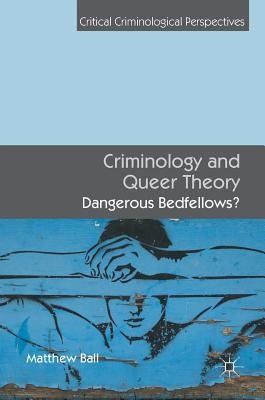
- We will send in 10–14 business days.
- Author: Matthew Ball
- Publisher: Palgrave Macmillan
- ISBN-10: 1137453273
- ISBN-13: 9781137453273
- Format: 15.8 x 22.2 x 2 cm, kieti viršeliai
- Language: English
- SAVE -10% with code: EXTRA
Reviews
Description
This book offers critical reflections on the intersections between criminology and queer scholarship, and charts future directions for this field. Since their development over twenty-five years ago, queer scholarship and politics have been hotly contested fields, equally embraced and dismissed. Amid calls for criminology and criminal justice institutions to respond more effectively to the injustices faced by LGBTIQ people, criminologists have recently developed a Queer Criminology and turned to queer scholarship in the process.
Through a sweeping analysis of critical criminologies, as well as issues as varied as shame and utopian thought, Matthew Ball points to the many opportunities for criminology to engage further with the more politically disruptive strands of queer scholarship. His analysis highlights that criminology and queer theory are 'dangerous bedfellows', and that navigating the tension between them is central to confronting the social and criminal injustices experienced by LGBTIQ communities. This book will be of particular interest for scholars of criminology, criminal justice, LGBTIQ studies, gender studies and critical theory.
EXTRA 10 % discount with code: EXTRA
The promotion ends in 23d.16:13:37
The discount code is valid when purchasing from 10 €. Discounts do not stack.
- Author: Matthew Ball
- Publisher: Palgrave Macmillan
- ISBN-10: 1137453273
- ISBN-13: 9781137453273
- Format: 15.8 x 22.2 x 2 cm, kieti viršeliai
- Language: English English
This book offers critical reflections on the intersections between criminology and queer scholarship, and charts future directions for this field. Since their development over twenty-five years ago, queer scholarship and politics have been hotly contested fields, equally embraced and dismissed. Amid calls for criminology and criminal justice institutions to respond more effectively to the injustices faced by LGBTIQ people, criminologists have recently developed a Queer Criminology and turned to queer scholarship in the process.
Through a sweeping analysis of critical criminologies, as well as issues as varied as shame and utopian thought, Matthew Ball points to the many opportunities for criminology to engage further with the more politically disruptive strands of queer scholarship. His analysis highlights that criminology and queer theory are 'dangerous bedfellows', and that navigating the tension between them is central to confronting the social and criminal injustices experienced by LGBTIQ communities. This book will be of particular interest for scholars of criminology, criminal justice, LGBTIQ studies, gender studies and critical theory.


Reviews